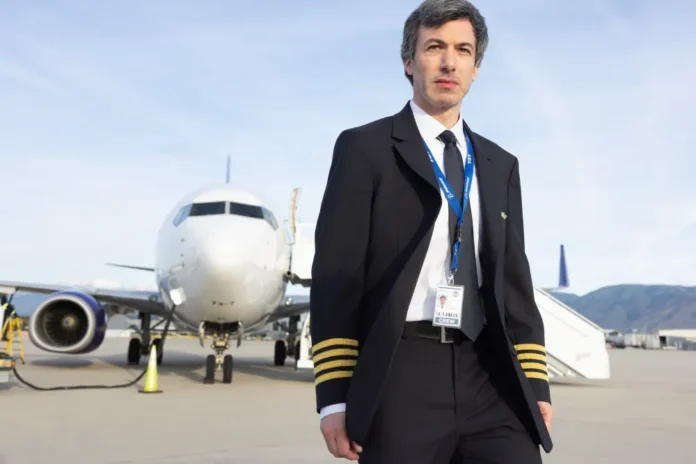As The Rehearsal Season 2 wrapped up on May 26, 2025, Nathan Fielder delivered a finale that left audiences stunned, questioning the boundaries between reality and performance. The HBO series, known for its meta-comedy and social experiments, took a bold leap in its second season, focusing on aviation safety while weaving in deeply personal themes. The finale, titled “My Controls,” aired last night, revealing that Fielder had secretly trained for over a year to become a certified commercial pilot, capable of flying a 737. This jaw-dropping twist reframed the entire season, showing it was less about planes and more about Fielder’s introspective journey into vulnerability, communication, and authenticity.
Need to Know: Key Takeaways from The Rehearsal Season 2
| Point | Details |
|---|---|
| Finale Twist | Nathan Fielder became a certified 737 pilot, staging a real flight with his cast to test cockpit communication. |
| Thematic Depth | The season explored autism, vulnerability, and human connection, not just aviation safety. |
| Emmy Buzz | The series is submitting for Outstanding Comedy Series and other categories for the 2025 Emmys. |
A Finale That Soars Beyond Expectations
The Rehearsal Season 2 finale, “My Controls,” pulled off what many are calling Fielder’s greatest stunt yet. Over six episodes, he constructed an elaborate narrative around improving aviation safety by addressing poor pilot communication—a leading cause of crashes. But the finale revealed a hidden layer: Fielder himself spent a year training in Henderson, Nevada, to earn a commercial pilot’s license. He then piloted a real 737 with his cast aboard, testing his theories about communication in the cockpit. This wasn’t just a stunt; it was a profound metaphor for Fielder’s struggle to connect authentically, both in the show and in his personal life. The episode blended humor, absurdity, and raw emotion, with moments like Fielder grappling with “chair landings” to overcome his fear of failure.
The season’s aviation theme wasn’t random. Fielder used it to explore how fear and ego can stifle honest communication, drawing parallels to everyday human interactions. His cast, including actors from his “Fielder Method” rehearsals, played passengers on the flight, unaware of the full scope until the plane took off. The emotional weight hit when Fielder admitted his struggles with landings mirrored his fear of vulnerability—a theme that resonated deeply with viewers.
Unpacking the Autism Connection in The Rehearsal Season 2
One of the most talked-about aspects of The Rehearsal Season 2 was its exploration of autism, particularly in episode five, “Washington.” Fielder, who has never claimed an autism diagnosis, engaged with autistic journalists and advocates who saw parallels between his methodical “rehearsals” and the masking techniques some autistic people use to navigate social situations. In “Washington,” he met with Congressman Steve Cohen to pitch aviation safety reforms, but the episode took a meta turn when Fielder addressed speculation about his own neurodivergence. Fans on social platforms praised this as a sensitive, if unconventional, exploration of identity, though some criticized Fielder’s approach as overly performative.
The finale tied this thread together, showing Fielder confronting his own social anxieties while piloting the plane. By framing his personal growth through the lens of a high-stakes flight, he made a universal point: rehearsals, whether for a flight or a conversation, can help us face our fears. This blend of absurdity and sincerity is why The Rehearsal Season 2 feels so groundbreaking.
Emmy Buzz and Cultural Impact
With the finale still fresh, The Rehearsal Season 2 is already generating Emmy buzz. HBO confirmed the series will submit for Outstanding Comedy Series, with Fielder vying for Lead Actor and specific episodes like “My Controls” and “Kissme” targeting technical categories like picture and sound editing. The show’s innovative structure—blending documentary, satire, and performance art—has critics calling it a cut above traditional TV. Its cultural impact is undeniable, sparking debates about ethics in reality TV, especially after contestant Lana Love claimed she was misled into participating in the fake “Wings of Voice” competition.
Despite controversies, the season’s ability to weave disparate elements—like a fake singing show, cloned dogs, and a Sully Sullenberger reenactment—into a cohesive narrative about human connection is remarkable. Fielder’s willingness to expose his own flaws, from his “slow learner” status in pilot training to his social awkwardness, makes the show relatable and revolutionary.
Why The Rehearsal Season 2 Matters
The Rehearsal Season 2 isn’t just a TV show; it’s a mirror reflecting our struggles to communicate and connect. Fielder’s pilot stunt, while audacious, was a vehicle for exploring vulnerability in a world that often punishes it. The finale’s closing moments, with Fielder watching a “Wings of Voice” winner perform Evanescence’s “Bring Me to Life,” felt like a nod to finding authenticity through performance. It’s a fitting end to a season that constantly blurred the line between reality and artifice.
For fans, the show’s genius lies in its unpredictability. Each episode built toward a finale that was both a spectacle and a deeply personal confession. Whether you see Fielder as a comedic genius or a provocateur, The Rehearsal Season 2 challenges you to rethink what TV can do. It’s a bold, bizarre, and brilliant experiment that lingers long after the credits roll.
Join the Conversation
What did you think of The Rehearsal Season 2
